SOCCEREX INSIGHT ARTICLE
How a fifth-tier Welsh club rewrote the rules on club ownership, fan engagement, and commercial growth, with lessons for the future of football business.
When Ryan Reynolds and Rob McElhenney completed their purchase of AFC Wrexham in February 2021, the football world was bemused. A Hollywood actor and a TV producer buying a struggling club in the National League? It seemed like a vanity project dressed up as philanthropy.
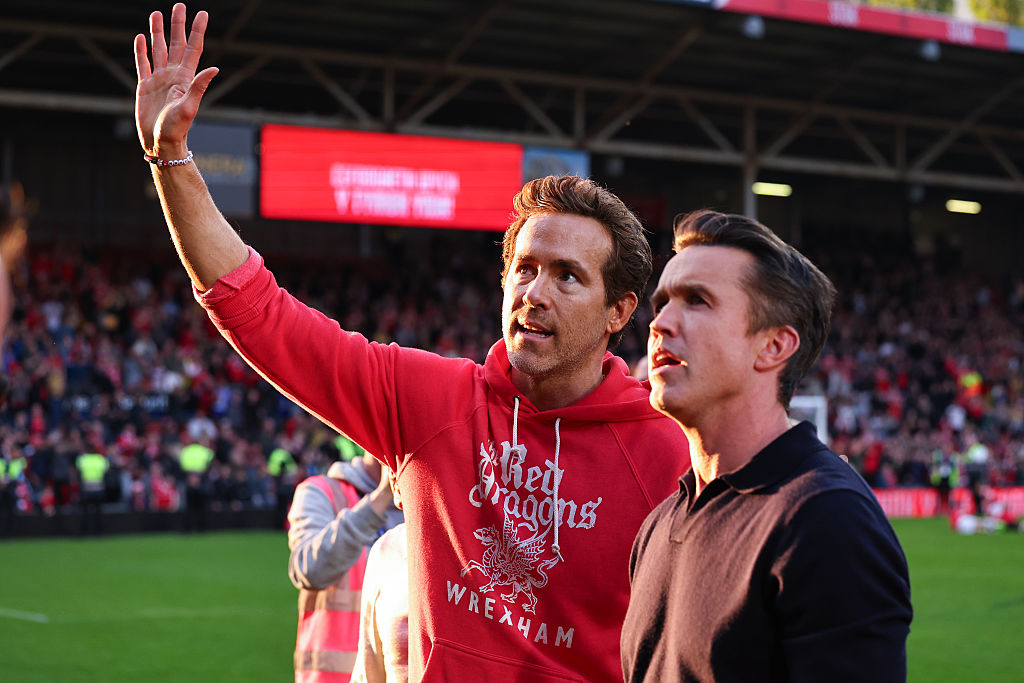
Four years later, the numbers tell a different story. Wrexham has secured back-to-back promotions, grown revenue by over 400%, expanded their stadium capacity, and built a global fanbase that rivals many Premier League clubs. More importantly, they’ve fundamentally challenged conventional wisdom about how football clubs should operate, grow, and engage with supporters.
Want to understand how they did it?
Join CEO Michael Williamson and Head of Strategy Mary Bane at Soccerex Miami for the full story behind the numbers.
But strip away the celebrity sheen and the Disney+ documentary, and what remains? A sophisticated business operation that’s pioneering new models in sports commerce, community engagement, and brand building. Understanding how Wrexham actually works (operationally, commercially, strategically) offers crucial lessons for clubs at every level of the football pyramid.
The Documentary as Infrastructure
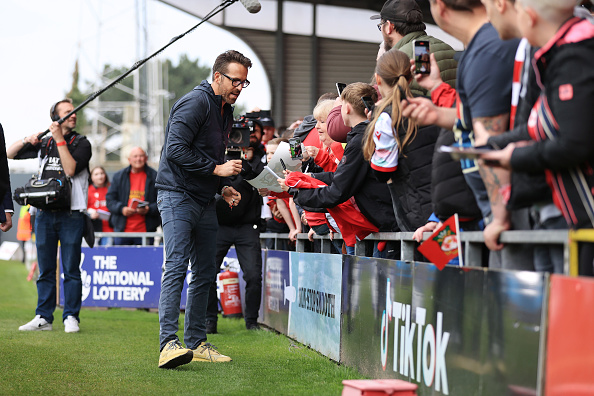
Most analysis of Wrexham focuses on “Welcome to Wrexham” as marketing. The documentary serves as infrastructure.
By granting unprecedented behind-the-scenes access, Wrexham created a permanent content engine that serves multiple business functions simultaneously: it builds emotional investment in new audiences, provides sponsors with storytelling platforms beyond traditional activation, generates ancillary revenue through streaming deals, and creates a talent recruitment advantage by showcasing the club’s culture and ambition.
Consider the strategic implications: Wrexham doesn’t need to buy advertising to reach global audiences. They don’t need to manufacture “content” for social media. The club’s actual operations (signings, matches, community initiatives) are inherently compelling because viewers are emotionally invested in the narrative.
This is the inverse of traditional football marketing, where clubs spend heavily to manufacture interest. Wrexham’s model makes their business operations the product itself. It’s a fundamentally different commercial architecture.
“Wrexham doesn’t need to buy advertising to reach global audiences. The club’s actual operations are inherently compelling because viewers are emotionally invested in the narrative.”
Non-Endemic Sponsorship in a New Era
The partnership between United Airlines and a League One Welsh club would have been unthinkable five years ago. Airlines sponsor major tournaments and top-flight clubs with global reach. They don’t typically invest in third-tier football.
Yet here’s United as an integrated strategic partner beyond jersey sponsorship. Why? Because Wrexham offers something increasingly valuable: authentic storytelling at scale.
Traditional sponsorship metrics (impressions, logo visibility, broadcast minutes) are becoming less meaningful in an era of fragmented media consumption. Brands are seeking deeper engagement: narrative integration, value alignment, community connection. Wrexham’s transparency and documentary-driven model provides exactly that.
United goes beyond putting their logo on a jersey. They’re embedded in a story about ambition, community, and transformation that reaches millions globally through long-form content. They’re associated with authenticity and grassroots support rather than the commercial sterility that often accompanies top-tier sponsorship.
This signals a broader shift in sports commerce. Brands are moving from visibility-based sponsorship to narrative-based partnership. Clubs that understand storytelling and are willing to be vulnerable and authentic can attract investment regardless of their league position.
“Brands are seeking deeper engagement: narrative integration, value alignment, community connection. Wrexham’s transparency provides exactly that.”
The Myth of Replicability
Every club wants to know: can we replicate Wrexham’s success?
The honest answer is complicated. No, you can’t replicate celebrity ownership, documentary deals, and viral social media growth. But yes, you can learn from the underlying strategic principles.
What’s unique to Wrexham:
- •Celebrity owners with built-in audiences and Hollywood production capabilities
- •A documentary deal that required specific timing and platform interest
- •A compelling underdog narrative (oldest club in Wales, fallen on hard times, tight-knit community)
- •Owners willing to invest significant personal capital
What’s transferable:
- •Transparency as a competitive advantage
- •Community-first decision making that builds trust
- •Content creation as core business strategy, not marketing afterthought
- •Non-traditional partnership models that offer brands narrative access
- •Digital-first fan engagement that doesn’t require physical proximity
- •Operational excellence beneath the Hollywood narrative
The real lesson: understand what makes your club’s story compelling, then build business models around that narrative.
The Operational Reality Behind the Romance
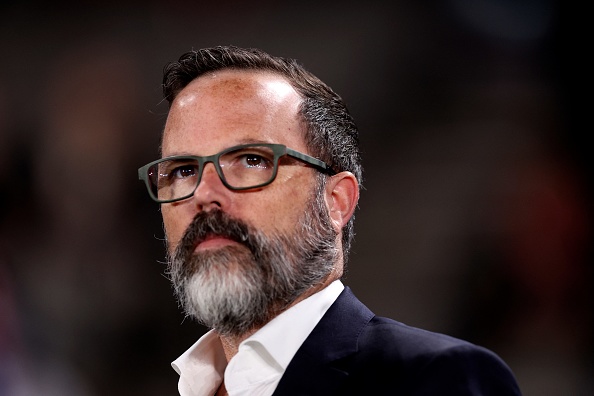
While media coverage focuses on Reynolds and McElhenney, the club’s success depends on sophisticated operational management. CEO Michael Williamson and his executive team are navigating extraordinary complexity:
Infrastructure scaling: Expanding Racecourse Ground while managing planning constraints and maintaining historic character. Rapid stadium growth requires community relations, regulatory navigation, and operations management beyond construction.
Talent strategy: Competing for players with clubs that have higher league status and deeper pockets. Wrexham’s brand helps recruitment, but they still need competitive compensation structures and player development pathways.
Commercial growth: Building commercial departments from scratch to handle exponentially growing sponsorship interest, merchandising demand, and partnership opportunities. This requires new hires, systems, and processes for operational infrastructure that takes time and expertise.
Fan experience: Maintaining intimate community connections while managing a global fanbase. How do you stay true to local supporters while accommodating American tourists? How do you preserve club culture amid rapid change?
Media management: Coordinating with documentary production while running day-to-day operations. Cameras create operational complexity through coordinating access, managing player privacy, and handling sensitive business discussions with cameras present.
This represents hard-nosed business management in uniquely challenging circumstances.
Commercial Innovation Beyond Sponsorship
Wrexham’s commercial strategy extends far beyond traditional revenue streams:
Retail as global business: The club’s online store ships globally, with significant revenue from North American supporters who may never visit Wales. This required e-commerce infrastructure, international logistics, and merchandise design that appeals to diverse audiences.
Experience economy: American and international supporters plan trips to Wrexham, creating hospitality opportunities. The club is effectively in the tourism business, not just the football business.
Licensing and partnerships: From FIFA video game prominence to potential US-based commercial opportunities, Wrexham is building revenue streams that transcend match-day operations.
Content monetization: Beyond the documentary, the club creates digital content that drives engagement and provides additional sponsor integration opportunities.
Each element may seem familiar individually. Collectively, they represent a commercial ecosystem built for the digital age rather than the broadcast era.
Community as Competitive Advantage
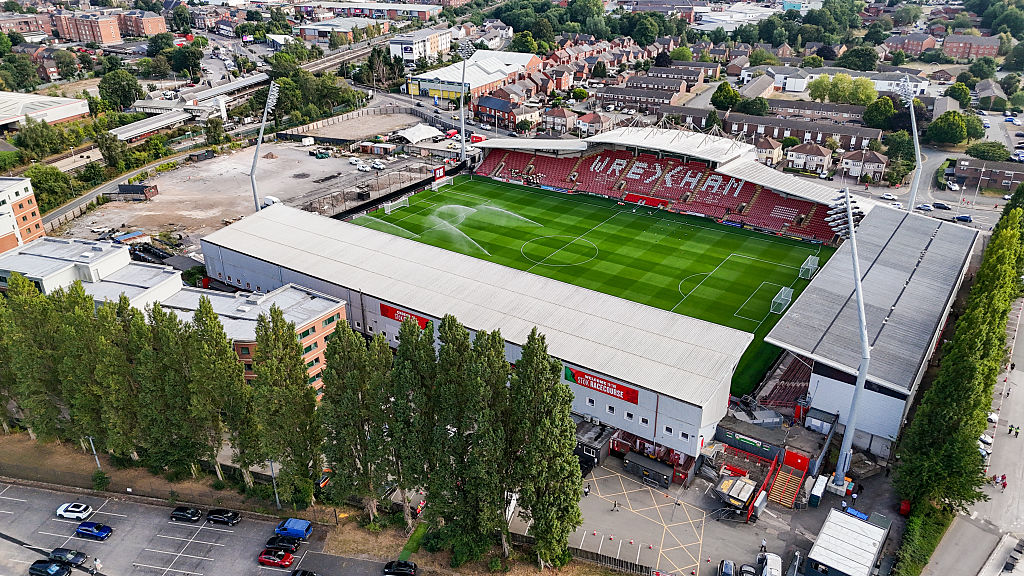
Perhaps Wrexham’s most valuable asset is something you can’t see in financial statements: community trust.
The club hasn’t lost its soul amid rapid growth. Local supporters still feel ownership, even as global attention explodes. This is exceptionally rare in modern football, where growth often alienates core supporters.
How did Wrexham maintain this balance?
Consistent communication: Regular updates, transparency about decision-making, acknowledgment of concerns. The documentary itself is a form of radical transparency.
Community investment: The owners’ first major decision was improving facilities to serve supporters and local youth programs. They demonstrated commitment through action.
Preservation of culture: The club maintains traditions, honors history, and gives local voices platforms. Growth doesn’t mean abandoning identity.
Shared success: As the club rises, the entire community benefits economically and emotionally through collective achievement.
This community trust is now a business asset. It’s why sponsors get authentic integration. It’s why the documentary works. It’s why players want to join. Trust is infrastructure.
See How Trust Translates to Revenue
Michael Williamson will explore Wrexham’s commercial strategy, partnership approach, and sustainable growth model at Soccerex Miami.
📅 Day 2 | November 13 | 1:30 PM
What Happens When the Documentary Ends?
The question football executives are really asking: is this sustainable?
What happens when “Welcome to Wrexham” concludes? When the novelty fades? When promotion success stabilizes or setbacks occur?
Wrexham’s bet is that they’ve built sustainable infrastructure beneath the media attention. The documentary created awareness, but operational excellence, community connection, and commercial innovation provide staying power.
The club is making long-term investments: stadium expansion, academy development, commercial team building. These suggest confidence that Wrexham’s business model transcends temporary media interest.
Early indicators are promising. Merchandise sales remain strong years after initial surge. Sponsorship interest continues growing. Fan engagement metrics show sustained attention, not fleeting curiosity.
But sustainability requires evolution. Wrexham must build commercial relationships that don’t depend on documentary storylines. They need to develop revenue streams that function without Hollywood involvement. The club must become financially self-sustaining, with Reynolds and McElhenney as accelerators rather than permanent life support.
Implications for Football’s Future
Wrexham matters because it demonstrates alternative pathways to football success.
The conventional model says lower-league clubs need sugar-daddy owners who inject cash until promotion, or patient community ownership that accepts limited ambition. Wrexham demonstrates a third way: strategic investment combined with sophisticated storytelling and community partnership.
For decades, football business has been about scarcity: limited broadcast slots, limited sponsorship categories, limited attention. Digital media creates abundance. Clubs that understand content creation, narrative building, and direct fan relationships can build businesses that don’t depend solely on league position.
This doesn’t mean every club should make a documentary. It means clubs should identify their unique stories and build commercial strategies around those narratives. It means transparency and authenticity can be competitive advantages. It means brand partnerships can be rethought around shared values rather than just visibility.
Wrexham is one model. Others will emerge. But the lesson is clear: in a digital age, storytelling ability and community connection matter as much as on-field performance for building sustainable football businesses.
A Voice from Inside the Transformation
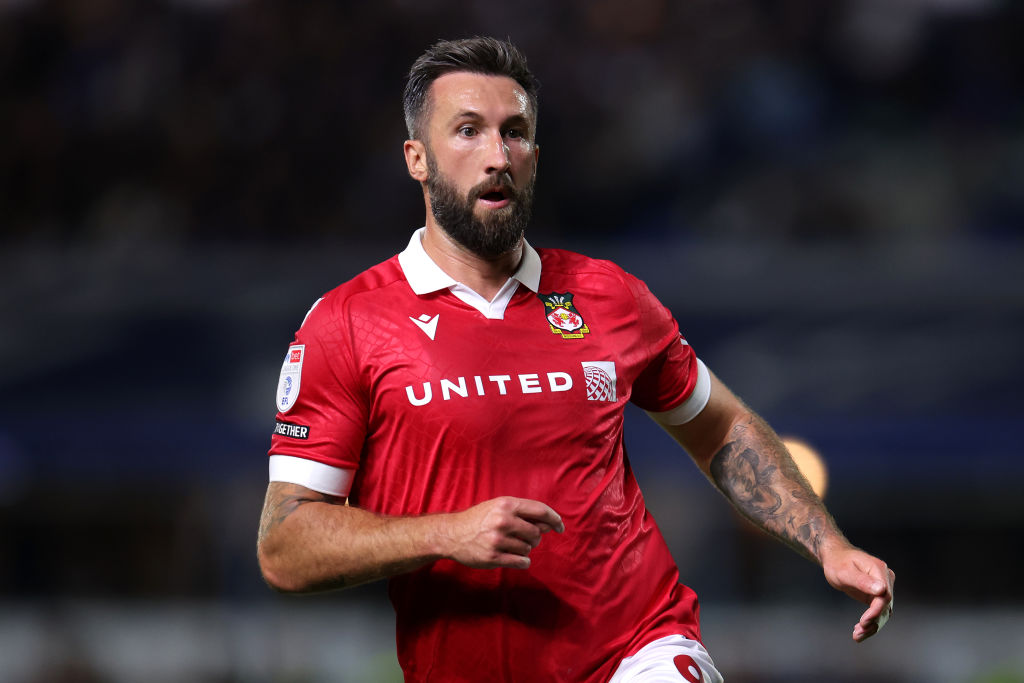
Understanding Wrexham’s transformation means hearing from those who experienced it firsthand. At Soccerex Miami, attendees will have the opportunity to meet Ollie Palmer, who became one of the most recognizable faces in the “Welcome to Wrexham” documentary series during his time at the club.
Palmer, who now plays professionally in UK football, will be attending as a Wrexham ambassador. His unique perspective bridges the player experience and the business transformation. He witnessed how documentary cameras, celebrity ownership, and exponential growth affected day-to-day operations, team dynamics, and the football itself.
His presence at the conference provides attendees with direct access to insights often missing from business discussions. What does it mean to play for a club with millions of invested viewers worldwide? How do players navigate the tension between traditional football culture and Hollywood production? How has the Wrexham model influenced player recruitment and career decisions across UK football?
Palmer’s attendance represents the human element behind the business case study, offering a grounded perspective on what this transformation means for the people who live it.
🎯 Don’t Miss This Opportunity
Meet Ollie Palmer, hear from CEO Michael Williamson, and learn partnership strategies from United Airlines at Soccerex Miami.
Join the Conversation at Soccerex Miami
On Day 2 of Soccerex Miami, Michael Williamson, the CEO navigating this transformation, will provide operational insight into how Wrexham works behind the cameras and celebrity headlines.
Alongside Mary Bane, Head of Strategy at United Airlines, Williamson will discuss the commercial transformation, partnership innovation, and sustainable growth strategies.
✨ Special Guest
Meet Ollie Palmer, who starred in the “Welcome to Wrexham” documentary during his time at the club. Palmer, now playing professionally in UK football, will be attending as a Wrexham ambassador, offering attendees direct access to the player perspective on this transformation.
This session offers serious business strategy from executives building the future of football commerce.
Session: AFC Wrexham
📅 Day 2 | November 13, 2025 | 1:30 PM
Moderator: Paul Desbailets
Speakers: Michael Williamson, CEO, AFC Wrexham | Mary Bane, Head of Strategy, United Airlines
The Wrexham phenomenon continues to evolve. Understanding what comes next matters whether you’re running a lower-league club, advising ownership groups, or leading brand strategy for sports sponsors.
Join us in Miami to understand how a Welsh football club became a global business case study.
